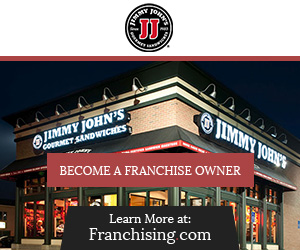Valuation in a Down Economy: For Solid Companies And Buyers, Opportunities Remain
As we have highlighted throughout 2007, the change in the economy we anticipated is finally upon us.
Rising commodity prices and an increasingly competitive marketplace have presented a more cautionary tone for franchise operators as consumers monitor their spending habits more closely than ever. Oil prices pulled back from prior record levels providing some relief for consumers; however in February, they closed at over $100 for the first time. And continued fallout from the sub-prime mortgage market, along with a significant downturn in the housing market, has directly affected consumers' discretionary spending.
Additionally, merger and acquisition deal volume slowed dramatically in the fourth quarter as the debt markets for structured transactions experienced a decrease in overall liquidity and availability of capital. Financial institutions, many of whom are dealing with their own internal control issues, have become more conservative in their leverage advance rates and are demanding higher yields to account for changing risk dynamics in the marketplace.
So how do all of these negative signals affect the merger and acquisition marketplace? When economic conditions weaken and financial markets soften, the common belief is that valuations in the merger and acquisition marketplace will soon follow suit. However, as the past has shown us, that is not always the case.
Historically, it is more common to see an overall decline in transaction volume rather than a constant level of deal flow supported by a significant decrease in company valuations. This is especially true in privately held middle-market companies.
Certainly there are instances, especially with higher multiple transactions (i.e., franchisor transactions), where the market forces seller expectations to retreat to "historically normal" levels. Ultimately, some of these deals are consummated at somewhat lower valuations as the selling companies are satisfied receiving what remains to be a premium, albeit a lower, valuation multiple.
However, middle-market companies that have traditionally traded in a more reasonable valuation range (i.e., franchisee transactions) have been reluctant to lower their pricing expectations as a result of general market conditions. A majority of these closely held companies do not perceive a fundamental change in the value of their businesses solely because of interim economic weakness or interruptions in the capital markets. As a result, these potential sellers will often elect not to pursue exit strategies in what they believe to be a weak marketplace. This can often be a mistaken strategy and a missed opportunity for many attractive acquisition candidates.
Experienced, well-capitalized buyers understand that during times of economic softness the marketplace "weeds out" less sophisticated buyers. This creates a higher probability of success in closing high-priority acquisitions at a fair multiple as a result of reduced competition. Inexperienced acquirers will often adopt an "opportunistic" strategy predicated on a substantial contraction in valuations. Often, this valuation shift never materializes, and many of these acquirers miss a tremendous opportunity to purchase attractive companies during these periods of economic downturn.
Additionally, financing constraints in the capital markets will often preclude the highly leveraged buyers from executing their acquisition strategies during these times. The firms that have the ability to inject meaningful equity capital into their transactions have a distinct advantage in this environment.
Our recommendation to franchise companies considering an exit strategy or liquidity event during a period of economic downturn is to be aware of the market conditions, but don't be afraid to move ahead with your plans.
Be wary of buyers with limited equity capital resources, as their ability to secure aggressive levels of debt financing is limited.
Finally, we recommend that buyers adopt the long-term view regarding their acquisition strategy and the specific targets they are considering. Do not fall into the trap of being persuaded by the "sky is falling" message too often perpetuated by the media. It can be an excellent time to acquire premier companies with the proper capitalization structure that will provide strong returns for years to come.
Dean Zuccarello, CEO and founder of The Cypress Group, has more than 25 years of financial and transactional experience in mergers, acquisitions, divestitures, strategic planning, and financing in the restaurant industry. The Cypress Group is a privately owned investment bank/advisory services firm focused exclusively on the multiunit and franchise industry for more than 17 years. Contact him at (303) 680-4141 or at dzuccarello@cypressgroup.biz.
Share this Feature
Recommended Reading:
Comments:
comments powered by DisqusFRANCHISE TOPICS
- Multi-Unit Franchising
- Get Started in Franchising
- Growth
- Operations
- Open New Units
- Leadership
- Marketing
- Technology
- Legal
- Awards
- Rankings
- Trends
- Featured Franchise Stories
FEATURED IN

Multi-Unit Franchisee Magazine: Issue 2, 2008
$70,000




 The multi-unit franchise opportunities listed above are not related to or endorsed by Multi-Unit Franchisee or Franchise Update Media Group. We are not engaged in, supporting, or endorsing any specific franchise, business opportunity, company or individual. No statement in this site is to be construed as a recommendation. We encourage prospective franchise buyers to perform extensive due diligence when considering a franchise opportunity.
The multi-unit franchise opportunities listed above are not related to or endorsed by Multi-Unit Franchisee or Franchise Update Media Group. We are not engaged in, supporting, or endorsing any specific franchise, business opportunity, company or individual. No statement in this site is to be construed as a recommendation. We encourage prospective franchise buyers to perform extensive due diligence when considering a franchise opportunity.